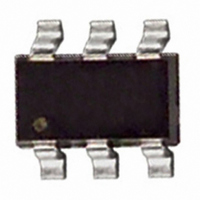EL5106IW-T7A Intersil, EL5106IW-T7A Datasheet - Page 7

EL5106IW-T7A
Manufacturer Part Number
EL5106IW-T7A
Description
IC OP AMP HS VF 300MHZ SOT-23-6
Manufacturer
Intersil
Datasheet
1.EL5106IS.pdf
(12 pages)
Specifications of EL5106IW-T7A
Amplifier Type
General Purpose
Number Of Circuits
1
Slew Rate
4500 V/µs
-3db Bandwidth
380MHz
Current - Input Bias
1.5µA
Voltage - Input Offset
1000µV
Current - Supply
1.5mA
Current - Output / Channel
100mA
Voltage - Supply, Single/dual (±)
5 V ~ 12 V, ±2.5 V ~ 6 V
Operating Temperature
-40°C ~ 85°C
Mounting Type
Surface Mount
Package / Case
SOT-23-6
Lead Free Status / RoHS Status
Contains lead / RoHS non-compliant
Output Type
-
Gain Bandwidth Product
-
Typical Performance Curves
Applications Information
Product Description
The EL5106 and EL5306 are fixed gain amplifier that offers
a wide -3dB bandwidth of 350MHz and a low supply current
of 1.5mA. They work with supply voltages ranging from a
single 5V to 12V and they are also capable of swinging to
within 1.2V of either supply on the output. These
combinations of high bandwidth and low power make the
EL5106 and EL5306 the ideal choice for many
low-power/high-bandwidth applications such as portable,
handheld, or battery-powered equipment.
For varying bandwidth and higher gains, consider the
EL5191 with 1GHz on a 9mA supply current or the EL5162
with 300MHz on a 4mA supply current. Versions include
single, dual, and triple amp packages with 5 Ld SOT-23,
16 Ld QSOP, and 8 Ld SOIC or 16 Ld SOIC outlines.
Power Supply Bypassing and Printed Circuit
Board Layout
As with any high frequency device, good printed circuit
board layout is necessary for optimum performance. Low
impedance ground plane construction is essential. Surface
mount components are recommended, but if leaded
components are used, lead lengths should be as short as
possible. The power supply pins must be well bypassed to
reduce the risk of oscillation. The combination of a 4.7µF
tantalum capacitor in parallel with a 0.01µF capacitor has
been shown to work well when placed at each supply pin.
Disable/Power-Down
The EL5106 and EL5306 amplifiers can be disabled placing
their output in a high impedance state. When disabled, the
amplifier supply current is reduced to <25µA. The EL5106
and EL5306 are disabled when its CE pin is pulled up to
within 1V of the positive supply. Similarly, the amplifier is
enabled by floating or pulling the CE pin to at least 3V below
FIGURE 13. PACKAGE POWER DISSIPATION vs AMBIENT TEMPERATURE
7
(Continued)
1.4
1.2
1.0
0.8
0.6
0.4
0.2
0.1
0
0
JEDEC JESD51-7 HIGH EFFECTIVE THERMAL
CONDUCTIVITY TEST BOARD
1.250W
909mW
893mW
435mW
θ
JA
25
SOT23-6
= +230°C/W
EL5106, EL5306
AMBIENT TEMPERATURE (°C)
50
θ
SO16 (0.150”)
JA
= +80°C/W
75
85
the positive supply. For ±5V supply, this means that the
amplifier will be enabled when CE is 2V or less, and disabled
when CE is above 4V. Although the logic levels are not
standard TTL, this choice of logic voltages allow the EL5106
and EL5306 to be enabled by tying CE to ground, even in 5V
single supply applications. The CE pin can be driven from
CMOS outputs.
Gain Setting
The EL5106 and EL5306 are built with internal feedback and
gain resistors. The internal feedback resistors have equal
value; as a result, the amplifier can be configured into gain of
+1, -1, and +2 without any external resistors. Figure 14
shows the amplifier in gain of +2 configuration. The gain
error is ±2% maximum. Figure 15 shows the amplifier in gain
of -1 configuration. For gain of +1, IN+ and IN- should be
connected together as shown in Figure 16. This
configuration avoids the effects of any parasitic capacitance
on the IN- pin. Since the internal feedback and gain resistors
change with temperature and process, external resistor
should not be used to adjust the gain settings.
100
θ
θ
JA
JA
QSOP16
= +112°C/W
= +110°C/W
SO8
125
IN-
150
FIGURE 14. A
325Ω
IN+
V
+
325Ω
-
= +2
September 21, 2010
FN7357.6












